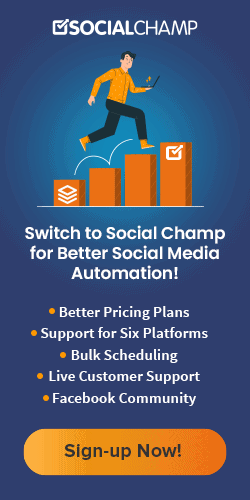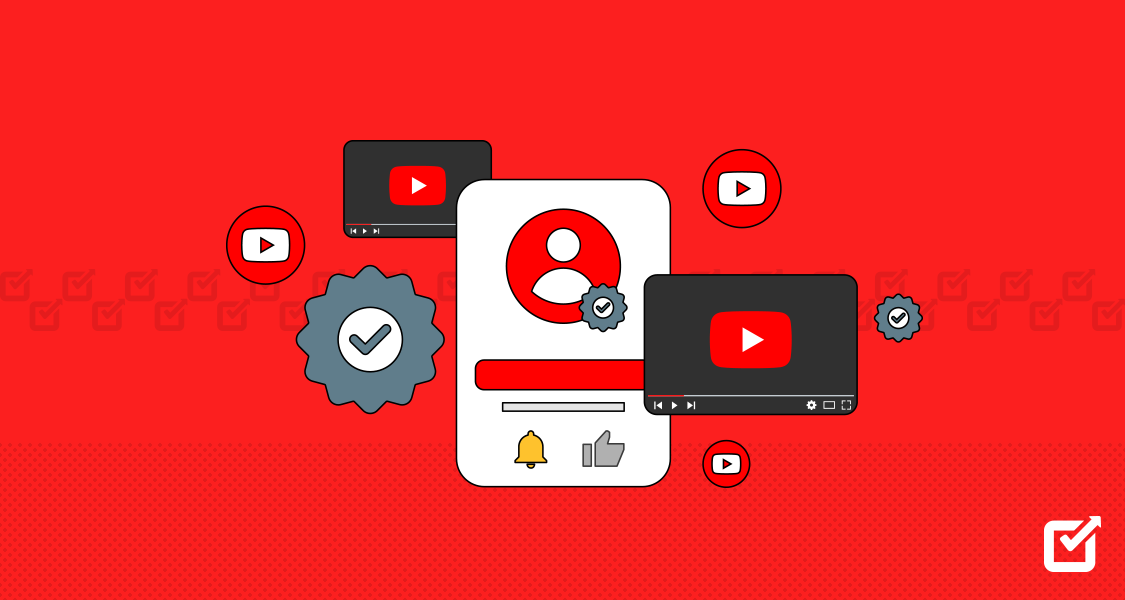Influencer marketing generates an impressive ROI of 11x, making it an essential tool for businesses trying to reach new audiences. SaaS companies, in particular, need innovative ways to cut through the noise and connect with their target market— and influencer marketing helps brands to do just that.
However, this method requires a strategic approach to ensure your investment is well-utilized. We’ve gathered insights from industry experts to elaborate on the specifics of how influencer marketing works for SaaS companies.
We’ll share firsthand experiences from those who’ve managed creator marketplaces for SaaS products, giving you a well-rounded perspective on this exciting marketing approach!
Nikola Vujic
Marketing Director at Veza Digital
Influencer marketing has definitely proven itself as a solid strategy for promoting SaaS products. From my experience managing campaigns at my agency, really taking the time to partner with influencers who have both expertise in your industry and credibility with their audiences sets you up well for success. Rather than just putting out generic endorsements, we’ve found it’s far better to focus on creating genuinely useful, educational content. Things like in-depth product reviews or tutorial videos that demonstrate real applications often resonate well. Livestreams and webinars also give influencers an opportunity to engage with their followers on a deeper level.
Making it worth the influencer’s time is key. Our affiliate program approach ties their incentives directly to performance by offering commissions on any sales generated. Careful tracking then allows us to continuously optimize where promotions are most impactful. I also had the opportunity several years ago to direct a creator marketplace specifically matching software companies with influencers. The real challenge there was sustaining quality while still providing creators the support needed to thrive. But cultivating that influencer community and encouraging collaboration definitely strengthened relationships across the board.
——————–

Keith Donovan
Startup Advisor and Founder of Startup Stumbles
Influencer marketing has been used for a long time, but social media has made it even better for reaching customers. Though influencer marketing was once thought of only for stores selling things, it can help software companies share their programs too. Influencers can really help promote software by reviewing products, showing how they work step-by-step, and hosting online events, thoroughly testing what each feature does and showing folks how everything works.
Partnering with influencers on posts for social media, blogs, and videos highlighting what a software can do is also useful. Letting influencers get money through affiliate links and co-hosting online events helps them sell things while demonstrating how the software fixes problems.
I have worked closely with startups that have leveraged influencer marketing to promote their software offerings. From what I saw, running a place focused on software influencers comes with challenges, like picking the right influencers who can effectively explain what your software is worth and making sure the partnerships give a good return on the investment.
Some challenges are choosing influencers who care about your software and have a big group of followers that matches customers. Measuring what does well can get mixed up too. Building long friendships takes ongoing talks, quick payments, and more chances to team up. It’s important to set clear aims for what you want influencer marketing to achieve and track how well the partnerships are meeting those aims. Investing in strong relationships to make influencer marketing powerful is important.
Setting clear aims for what you want influencer marketing to do and tracking how well partnerships are meeting those aims is important. Building good relationships where influencers and companies both benefit takes putting in consistent communication, on-time payments, and ongoing chances to work together. Doing these three things can increase what influencer marketing does for a software business.
——————–

Chris Townsend
An Expert Marketing Consultant of Three Movers
SaaS companies also invest in influencer marketing with the same impact as the other industries. Businesses will search for influencers, whose fans consist of their target audience, and in collaboration, present them with products and services they offer. Unlike other businesses where promotion is done through companies’ website and product placement, the SaaS industry relies principally on education and good product placement with enough information that the target market needs for its channels.
When we think at the SaaS brand promotion via an influencer marketing affiliate program, the companies should work on locating influencers having an audience that could be useful in the product use. Furthermore, you can utilize the power of personalized and segmented content effectively. Companies should need to value-added marketing mix that has product placements, content marketing, social media engagement, and affiliate marketing.
Striking a balance in a creator marketplace of SaaS products could be somewhat tricky since it would demand some technical capabilities that influencer programs don’t. Contrariwise, they can be considered as the best way of advertising the products and getting sales with trust and loyalty of the consumers. The main issues of running a creator marketplace focused solely on SaaS involve finding the correct experts who have the technical SaaS knowledge, designing promotional and selling materials, and handling instant support issues alongside continuous communication. Nevertheless, positive outcomes grasp the idea of setting up a concept, offering reasonable prices for influencers and building strong connection with influencers.
——————–

Sergey Solonenko
Founder and CMO of Algocentric Digital Consultancy
Influencer marketing in the SaaS industry hinges on collaborating with niche-specific thought leaders rather than broad-scale influencers. These thought leaders often include experienced SaaS founders, industry analysts, or seasoned professionals in specific technological fields. Their endorsements are powerful because they speak directly to an informed, professional audience that values their opinions due to their expertise and credibility.
Effective strategies in this realm typically involve integrating influencer campaigns with affiliate programs. This model rewards influencers based on the conversions or sales they drive, aligning their compensation with their performance. Such strategies not only motivate influencers to tailor their content to generate real business results but also ensure a measurable return on investment for SaaS companies.
From managing a creator marketplace focused on SaaS, the primary lesson learned is the critical importance of authenticity and expert alignment. Influencers must have a real and practical familiarity with the products they endorse. Their genuine experience and expertise lend credibility to their recommendations, which is essential for influencing purchase decisions in a B2B context. Moreover, clear communication about the nature of influencer partnerships and transparency with the audience are crucial to maintain trust and integrity within the marketplace.
——————–

Kayden Roberts
CMO at CamGo
A powerful approach for promoting SaaS products through influencers involves integrating them into an affiliate program where influencers receive a commission based on their subscriptions or sales. This incentivizes the influencer to produce more compelling content and aligns their success with the SaaS company’s growth. Webinars, tutorials, and in-depth reviews are practical content formats that influencers can utilize to educate their audience about the SaaS product’s features and benefits.
I’ve managed a creator marketplace specifically designed for SaaS products. The key to success was ensuring a good match between the influencers and the SaaS niches. Influencers who genuinely use and understand the SaaS product tend to create more authentic and engaging content. One of the main challenges was maintaining consistent messaging and brand alignment across various influencers. To address this, we developed comprehensive guidelines and conducted regular training sessions with influencers to ensure they understood the SaaS products deeply. The crucial takeaway from this experience was the importance of choosing the right influencers and the need for ongoing communication and education to ensure they remain true advocates of the SaaS product.
——————–

Jessica Miller
Partnerships Specialist at Pearl Mountain
Influencer marketing thrives in the SaaS industry by leveraging trusted voices to showcase the value propositions of often complex products. Here’s how it works:
- Identify Industry Experts: Partner with tech influencers who understand your target audience’s pain points and how your SaaS solves them.
- Focus on Educational Content: Create tutorials, demos, and case studies that demonstrate your product’s features and benefits.
- B2B Tailoring: Craft messaging that resonates with businesses, highlighting ROI and efficiency gains.
While I haven’t directly managed a SaaS creator marketplace, my experience at FlexClip offers valuable insights:
- Building Trust is Paramount: Focus on fostering genuine relationships with creators and ensuring their content aligns with brand values.
- Nurturing a Community: Create a platform for creators to connect, share experiences, and collaborate.
- Data-Driven Decision Making: Track campaign performance and leverage data to optimize offerings and attract the right creators.
By partnering with the right influencers and fostering a strong affiliate program, SaaS companies can build brand awareness, generate qualified leads, and drive user growth.
——————–

Jeff Main
CEO & Founder at Champion Leadership Group
Influencer marketing in the SaaS industry is a game-changer, not just for boosting visibility but for genuinely engaging potential users on a deeper level. At Champion Leadership Group, we’ve transformed traditional influencer strategies into a powerful tool for real engagement. Our approach? We treat influencers as part of the team. They’re not just voices for hire; they’re integral to our narrative, deeply involved in product testing, and giving feedback that shapes our offerings.
We’ve introduced what I like to call immersive endorsements. Instead of simple endorsements, influencers use our SaaS tools to tackle real problems, documenting their journey. This not only demonstrates the software’s capabilities but also showcases its effectiveness in real-world scenarios. Their followers don’t just see a product; they see a solution being used by someone they trust.
Managing a creator marketplace specifically tailored for SaaS products has taught us invaluable lessons. One of the main challenges was ensuring that influencers fully understand and can represent the complexities of our software. To combat this, we developed a comprehensive onboarding process that includes hands-on workshops and regular update sessions. This ensures that every influencer has a deep understanding of the product, enabling them to communicate its value authentically and effectively.
The most crucial takeaway? Authenticity drives success. In a field as saturated as SaaS, authenticity isn’t just a buzzword—it’s your currency. By empowering influencers to be genuine advocates, we create more than just buzz; we build lasting connections. This approach has not only increased our conversions but has also enriched our product development with insights drawn directly from user experiences shared by our influencer community.
——————–

Sam Tarantino
Fractional CMO at Harmonic Reach
Influencer marketing within the SaaS industry functions uniquely due to its focus on niche, specialized audiences. During my tenure at Grooveshark and now at Harmonic Reach, I’ve applied vital lessons from the music streaming business to SaaS products, leveraging influencer relations to drive both awareness and conversion. One effective method is to engage influencers who are already using similar SaaS solutions or who have a vested interest in the services offered.
These influencers understand the language of the industry and can authentically communicate the value propositions to their network. For example, a notable strategy involved a partnership with tech bloggers and LinkedIn thought leaders who shared their real-time user experiences with our software, highlighting its efficacy and streamlining capabilities in their professional workflows.
Handling a creator marketplace for SaaS products, the main challenges were ensuring influencers genuinely resonate with the product and maintaining transparency about capabilities without overselling. The focus was always on creating long-term relationships rather than one-off promotions. This taught us the importance of continuous engagement and feedback loops between influencers and the product team, enabling ongoing improvement and authentic endorsements.
In summary, influencer marketing in the SaaS realm relies heavily on credibility and genuine product efficacy, necessitating a meticulous selection process and deep nurturing of influencer relationships. The ROI lies not just in reach but in the trust and authority these influencers command within their professional communities.
——————–

Ryan Esco
Chief Marketing Officer at FireRock Marketing
Influencer marketing in the SaaS industry demands a nuanced strategy compared to consumer goods due to the complex nature and specialized audience of these products. At FireRock Marketing, we’ve developed targeted approaches, crafting campaigns that leverage influencers not only for their audience reach but for their expertise in using advanced tech tools. One effective method our team has utilized is facilitating in-depth training sessions for influencers, ensuring they have a solid understanding of the product they’re promoting.
This educational approach not only empowers influencers to showcase the SaaS product competently but also builds trust with their audience. For instance, for a project management tool, we coordinated demo sessions with key influencers, who later shared their experiences on how the tool enhanced their operational efficiency in their project rollouts.
The critical challenge in managing a creator marketplace for SaaS products revolves around aligning product capabilities with the right influencer specialties. It required rigorous vetting processes and continuous feedback mechanisms, aimed at ensuring a genuine fit between the influencer’s area of expertise and the product’s key features.
Misalignments could lead to disingenuous promotions, which can be detrimental in a sector where credibility is paramount. Learning from experiences, one of the most valuable lessons was the importance of ongoing dialogue and involvement from the influencers in product updates, making them not just promoters but also valuable contributors to the product’s evolution.
——————–

Marc Bishop
Director at WYTLABS
SaaS products, which are often complex and require a good deal of trust before purchase, benefit immensely from influencer endorsements. These influencers, who are typically revered within SaaS circles, add a layer of trust and authority by using or discussing the product. The effectiveness of this marketing strategy lies in its ability to cut through the digital noise and provide genuine user experiences to potential customers.
This is often achieved through detailed case studies, tutorial videos, or insightful blog posts crafted by the influencers, making the product’s benefits tangible to the audience. Creating custom discount codes that influencers can offer to their followers is a popular and effective method. This not only tracks the conversion rate linked to each influencer, providing clear metrics on the campaign’s performance, but also gives potential customers a tangible incentive to use a product they see being beneficially used by someone they trust.
Managing a creator marketplace for SaaS products has been an enlightening journey. We focus on curating a network of influencers who not only have significant followings but also align with our ethical values and have a demonstrated history of engaging with tech-based content.
This targeted approach has helped us ensure that the collaborations we facilitate are fruitful, both in terms of engagement and conversions. One major challenge was ensuring that influencers truly understood the SaaS products they were promoting. This required not only selecting influencers with the right technical background but also providing them with comprehensive training and resources about the products. The lesson here was clear: depth of knowledge translates to quality of content, which in turn affects audience trust and campaign success.
——————–

Kurt Uhlir
Chief Marketing Officer at Ethereal Innovations
Companies need to separate organic influencers from paid influencers. Too often, agencies and marketers refer to paid relationships as “influencers” when, in fact, it is advertising and working with creators. I’ve had great success with multiple SaaS products with both, but there is a distinction. For organic influencers who are already discussing the product or when reaching out to current customers, you must acknowledge that they already use the product and would like to help amplify their message.
Adding an affiliate program to these relationships rewards the individuals for what they are already doing, in addition to boosting their message. I’ve had mixed results with the 10+ creator marketplaces that I have experimented with. Often the content created simply did not feel genuine. Now, I have had great success by cultivating individual relationships where we reach out directly and then use a creator/influencer platform to facilitate any payments or terms.
——————–

Magee Clegg
CEO & Founder at Cleartail Marketing
In the realm of SaaS, influencer marketing must pivot from general audience appeal to specific, value-driven content that resonates with a knowledgeable tech audience. At Cleartail Marketing, we’ve honed this approach, focusing on influencers who aren’t just familiar with SaaS products but are seasoned users, which promotes authenticity and leverages their technical influence. For instance, we saw a significant uptick in engagement and conversion rates when we partnered with renowned data analytics influencers for a SaaS client specializing in big data solutions. These influencers conducted deep-dive tutorials and case studies that exemplified how our client’s tool streamlined voluminous data handling, resonating well with our tech-savvy audience.
Creating a successful creator marketplace for SaaS products presented unique challenges, primarily in aligning product complexities with influencer expertise. We tackled this by initiating a robust onboarding process where influencers received hands-on training with the SaaS tools, supplemented by regular update briefings to keep them abreast of new features and uses. This continuous learning process was crucial to ensure that the influencers fully grasped the intricacies of the tools, enabling them to genuinely advocate the benefits through their content.
The lessons learned from managing this marketplace have been invaluable. One key takeaway is the importance of maintaining a dynamic feedback loop between the influencers, the product team, and the audience. This not only aids in keeping the promotional content accurate and relatable but also assists in swiftly addressing any audience queries that arise from the influencer content. Effective influencer marketing in the SaaS industry hinges on this cycle of education, accurate representation, and feedback, which collectively contribute to a successful marketing strategy.
——————–

Timothy J Williams
Principal Consultant at Thinksia
Influencer marketing in the SaaS industry capitalizes on building trust and demonstrating the utility of a product through respected voices within the industry. My approach, shaped by years of leading marketing innovations, encourages selecting influencers who are not only tech-savvy but are actual users or can become long-term users of the software. This authenticity ensures that their testimonials and content are credible and resonate with their followers, who are likely decision-makers or influencers in their own sectors.
From my experience, particularly with a campaign executed for a CRM tool, we engaged mid-level influencers from the tech and business analytics sectors. These influencers were equipped with the tool, trained extensively, and shared their honest feedback across multiple platforms through detailed reviews, tutorial videos, and live Q&A sessions. The campaign’s success was measurable by a 40% increase in trial sign-ups, attributed directly to influencer activities, showcasing the direct impact of well-executed influencer partnerships.
Challenges in managing a creator marketplace for SaaS products often involve matching the right influencers with the right product offerings. The key lesson here is the importance of a thorough vetting process and continuous education on the product’s new features. For instance, understanding each influencer’s audience demographics and typical content engagement helped tailor messages that felt more personal and relevant, increasing the efficacy of the marketing message. Maintaining regular updates and feedback sessions with influencers also helped in quickly addressing any misconceptions or technical challenges, ensuring that the promotional content remained accurate and effective.
——————–
Geoff Cudd
Founder at Don’t Do It Yourself
Influencer marketing within the SaaS industry operates by leveraging industry experts and thought leaders to boost brand visibility and credibility. Effective methods for promoting SaaS products through an influencer marketing affiliate program include partnering with influencers who are genuinely interested in or already use the SaaS product. This authenticity resonates well with their audience. It’s also beneficial to use a performance-based model where influencers are compensated based on the subscriptions or sales they generate, ensuring alignment of interests.
I have managed a creator marketplace specifically for SaaS products, which presented unique challenges and insights. One major challenge was ensuring a good match between the influencers and the SaaS products. Not every influencer is a good fit for every type of software, and mismatched partnerships can lead to poor campaign performance. A valuable lesson learned was the importance of clear communication regarding the expectations and capabilities of the product. Influencers need thorough training and understanding of the product to effectively promote it.
Overall, the key to success in SaaS influencer marketing is choosing the right influencers and equipping them with the right tools and knowledge to genuinely and effectively engage their audience.
——————–
In Conclusion:
Influencer marketing holds immense potential for B2B SaaS companies, as echoed by our industry experts. We’d love to hear your thoughts! What questions do you have about influencer marketing for SaaS? Share your experiences or challenges in the comments below!
















